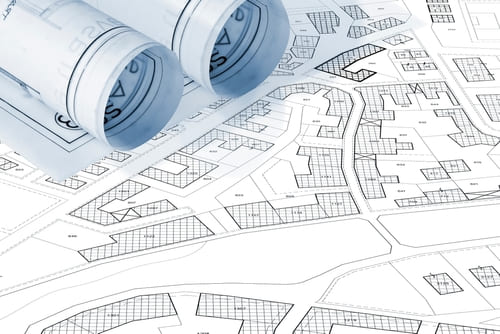Contact Our Firm
The use of the Internet or this form for communication with the firm or any individual member of the firm does not establish an attorney-client relationship. Confidential or time-sensitive information should not be sent through this form.
I have read and understand the Disclaimer and Privacy Policy.

Can Real Estate Litigation Be Used to Resolve Boundary Disputes?
 There are a variety of situations where residential or commercial property owners may encounter disputes with their neighbors related to property lines, encroachments, or other related issues. Boundary disputes can be difficult to resolve, and they can cause a great deal of stress and difficulty for property owners. In some cases, litigation may be required to ensure that a property owner’s rights will be protected. By understanding the legal issues involved in these cases, a property owner can determine the best approach to take to resolve boundary disputes successfully. An attorney with experience in real estate law and litigation can provide invaluable guidance in these cases while representing a property owner’s interests.
There are a variety of situations where residential or commercial property owners may encounter disputes with their neighbors related to property lines, encroachments, or other related issues. Boundary disputes can be difficult to resolve, and they can cause a great deal of stress and difficulty for property owners. In some cases, litigation may be required to ensure that a property owner’s rights will be protected. By understanding the legal issues involved in these cases, a property owner can determine the best approach to take to resolve boundary disputes successfully. An attorney with experience in real estate law and litigation can provide invaluable guidance in these cases while representing a property owner’s interests.
Types of Real Estate Boundary Disputes
Boundary disputes can arise in a variety of different situations, including:
-
Misinterpreted Deeds: When property deeds contain ambiguous language or errors, this can lead to disputes about the actual boundaries between properties.
-
Encroachments: A structure such as a fence or building may extend onto a neighbor's property. In some cases, an encroachment may occur because neighbors are unaware of the location of property lines, while in others, a person may discover that their neighbors knowingly violated property lines in the hope that the matter would never be contested.
-
Adverse Possession: When a neighbor uses another's property openly and continuously for a specific period, they may claim ownership. Under Florida law, a person must be in possession of property for at least seven years before they can claim ownership.
-
Boundary Line Agreements: Sometimes, informal agreements between neighbors about boundary lines can lead to disputes if they are not legally recorded. Neighbors may have a mutual understanding of where they believe property lines to be located, but failure to honor these agreements may require disputes to be resolved through the legal system.
Legal Issues in Boundary Disputes
Property owners dealing with boundary disputes may need to address multiple types of legal concerns, including:
-
Property Surveys: Obtaining an accurate survey is crucial to determine precise property lines. By working with a land surveyor, a property owner can establish the specific boundaries of their property and address issues such as encroachments or trespassing.
-
Title Searches: A thorough search of public records can reveal the history of the property, its ownership, and surveys that have been performed in the past. This may uncover information about previous boundary disputes or agreements between neighbors.
-
Zoning Laws: Local laws may determine the ways a property can be used or the types of structures that can be built. This may play a role in boundary disputes related to encroachments.
-
Easements: In some cases, one party may have been given legal rights to use someone else’s property for specific purposes. These agreements can sometimes complicate boundary disputes, and a title search and a review of existing records can help determine what agreements may exist and whether they are still valid.
Methods for Resolving Boundary Disputes
Neighbors may take a variety of different approaches as they work to resolve disputes related to property lines, encroachments, or other related issues. Methods of dispute resolution include:
-
Negotiation: By engaging in direct discussions between property owners and their attorneys, a mutual agreement may be reached on how disputes will be resolved.
-
Mediation: Parties may benefit by working with a neutral third party who can help facilitate discussions and provide guidance on the potential ways to resolve disputes.
-
Arbitration: Parties may agree to have their case reviewed by an arbitrator, who will issue a binding decision. Arbitration is less formal than court proceedings, and it can allow for effective solutions.
-
Litigation: If other methods of dispute resolution fail, the parties may need to take their dispute to court, where a judge will make a legally binding decision.
Contact Our Broward County, FL Real Estate Litigation Attorney
Disputes over property lines and other boundary-related issues can be difficult to resolve. At The Elliot Legal Group, P.A., our Oakland Park real estate lawyer can help property owners determine the best ways to resolve these disputes. We can help negotiate agreements, and if necessary, we can provide representation during litigation. Contact us today at 754-332-2101 to arrange a consultation and get effective representation in matters related to real estate law.















